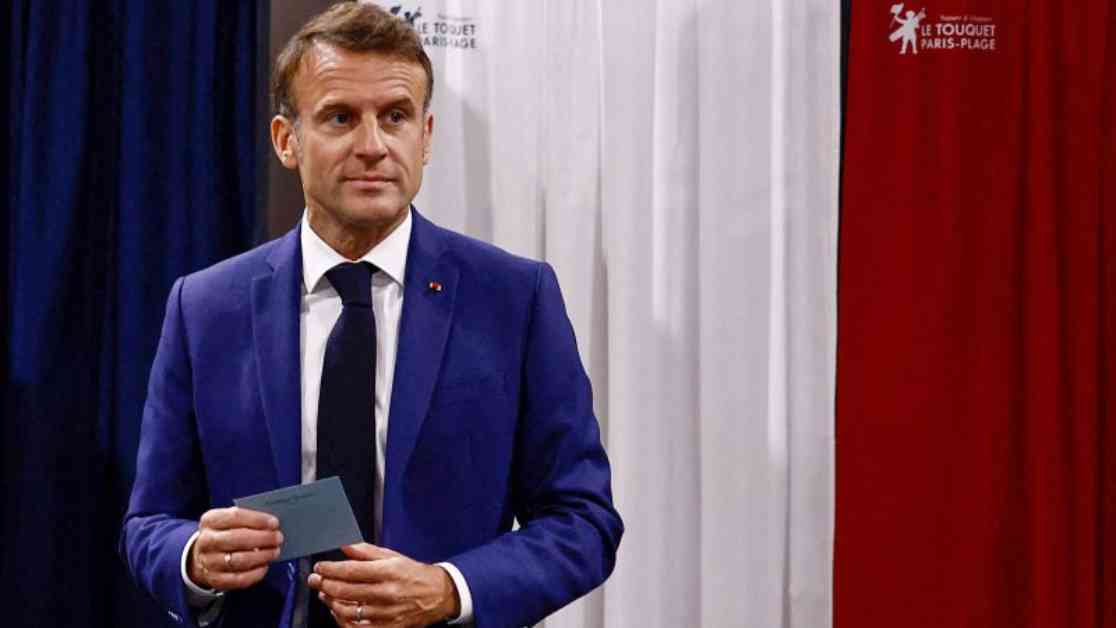Scientists in France are feeling relieved after the defeat of the right-wing party National Rally in the recent parliamentary elections. This outcome has avoided potential cuts to research budgets, restrictions on immigration, and the introduction of climate skepticism into France’s lower house of parliament. However, with no clear winner emerging, uncertainty looms over the future for scientists.
The National Rally had been expected to secure a majority after winning the first round of voting, causing concern among scientists about the impact on research and higher education. The surprise third-place finish for the party in the run-off vote has eased some fears, but questions remain about the direction the new government will take in supporting science and education.
President of the French Academy of Sciences, Alain Fischer, expressed relief at avoiding a catastrophe but remains cautious about the future for international scientists working in France. The absence of a clear winner in the elections raises doubts about significant policy changes in the science sector. Both major parties will now need to negotiate to form a government, leaving uncertainty for researchers.
The potential implications of a far-right victory have been a major concern for scientists, as seen in an op-ed signed by Nobel laureates and hundreds of other researchers. Restrictions on visas, threats to academic freedom, and funding cuts were among the fears expressed. Outgoing research minister Sylvie Retailleau highlighted the dangers of a far-right government for international cooperation and funding in the science sector.
While some researchers are cautiously optimistic about the future under new leadership, others remain skeptical about the prospects for French science. President of an alliance of French learned societies and associations, Patrick Lemaire, believes that the new government may prioritize environmental and energy transitions, benefiting research and higher education. However, Boris Gralak, general secretary of the French National Trade Union of Scientific Researchers, is less hopeful about the future of research in France without significant investment and support.
Overall, the defeat of the far-right party in the recent elections has brought relief to scientists in France, but uncertainties remain about the future of research and higher education under the new government. The need for continued investment, support, and international cooperation in the science sector is crucial for maintaining France’s position in the global research community.



